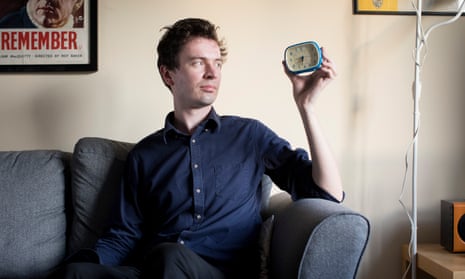When I was a kid, I thought that monsters came out of the dark. Turns out, they actually come out of the light. Like you, I run my life on the supercomputer in my pocket. At night I would place it under the pillow and struggle to put it out of mind, its bright screen a portal to other worlds.
Sure, most of Twitter is bile, but social media suits my exhibitionist spirit; I want to be front and centre of whatever conversations are happening. As a journalist, I am meant to be. When I said I wanted to get my phone out of my bedroom, a colleague half-jokingly asked : “What if something happens?”
So I read when I should have slept. I read funny takes on the latest meme. I read takedowns of Donald Trump’s latest outburst. I read people I thought I respected making excuses for cruelty as casually as cruelty seems to be creeping into public life. I read sombre updates on fresh tragedies. I did not see the link between bingeing on horror and not sleeping.
Your 30s are hard, with increasing responsibilities. Everyone else deals with it, why can’t you? These thoughts whirred round my brain as I stared up at the ceiling, sensing my heart rate rising the more I wondered why I was still awake. When deep breathing didn’t work, I would turn to the phone under my pillow. No new emails, hardly any new tweets except from Americans. So I’d go on Instagram, where I felt sad as I followed others living their best lives without me.
My first attempts to sleep better meant keeping the phone close. I downloaded an app of soothing noises, listened to a crackling fire through headphones and, when this didn’t work, turned it to full volume, which your phone warns can damage hearing. It makes as much sense as deciding that, because a campfire isn’t warm enough, you should put your face on it.
I went into work and felt my eyes drooping at 11am. I took caffeine tablets and got on with it.
Soon after, I was sitting in a gallery cafe with my mum and sister, dreading another year when I felt like I hadn’t done a great job of the last one. I explained that I wanted to be rid of the phone but I needed its one unarguably crucial function: the alarm. My sister disappeared to “go to the bathroom” and two days later I unwrapped a retro alarm clock from the gallery shop.
At home, I slapped in the AAA battery, set the time and wound the alarm hand round to 6am. That was it. My iPhone is more powerful than Apollo 11 and made things worse: how was this going to help? But the difference was immediate. That night I left the phone on my living room sofa, wondering whether I would last the night without coming to get it. I went to bed. I remember nothing of what happened next. I must have fallen asleep too quickly.
Since then, I have slept fine. The phone’s absence is soothing. Despite still feeling stress, I have not yet felt I have to get my phone in the middle of the night and bring the world rushing in to stave off bad thoughts. I have even slept through my triggers for not sleeping, like going to bed less than seven hours before when I have to get up, which used to lead to me lying awake reflecting how I could no longer get seven hours’ sleep.
My weekly swim is no longer a desperate attempt to tire myself out. I read a book in a week after reading 12 in seven months. Now the pillow next to mine is strewn with magazines. I love the serendipity of finding something I want to read within something small someone else has curated. You can’t curate the whole internet.
The alarm clock, with its single purpose, has started to feel like a neighbour who always helps with that one task you dread. It is familiar, safe – something that my phone never was. Pushing down the big button on top to silence the alarm is more satisfying than any of the millions of times I have tweeted, emailed or Googled. The clock never moves. It just sits there, offering me the smallest gesture of control and stability.
I still love my phone. In the mornings, there is more to catch up on after a break and, I hope, less risk of alarming others by watching their Instagram story within seconds of them posting it. One night, Twitter users started joking about “feral hogs”. Seven hours later, they were still going, and I doubt following it live helped anyone understand why. I belatedly joined in and then went to work.
The alarm clock helped me learn to accept that the world continues to turn without me. It is not a portal to another world, it is a reminder to wake up and live in this one.
